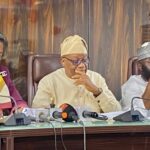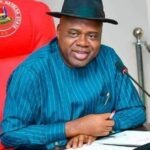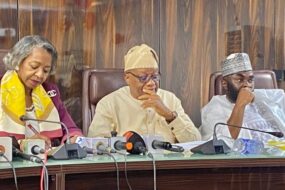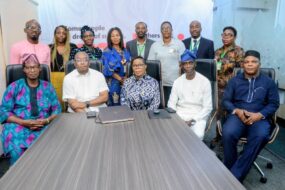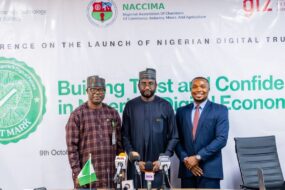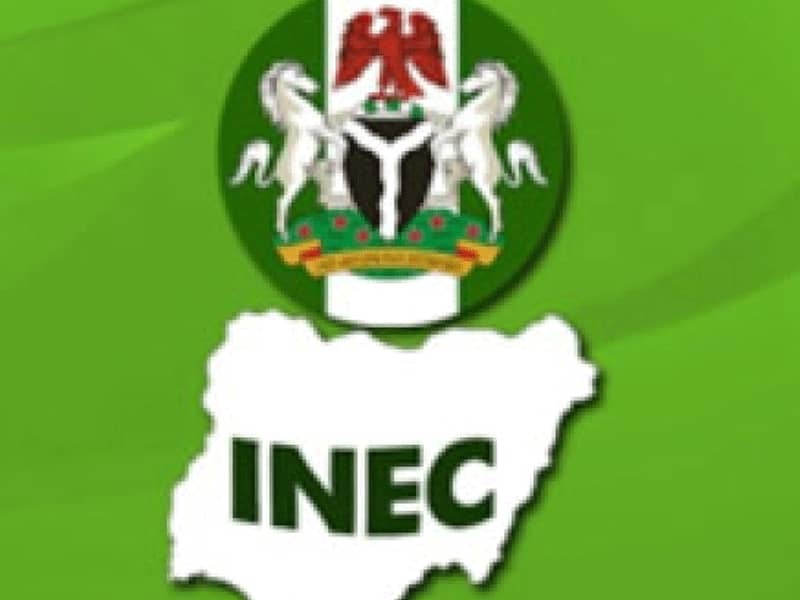
By Ndidi Anyanwu
In democratic systems, constituency boundaries are drawn and redrawn to reflect demographic changes and ensure equitable representation. However, in multi-ethnic societies, the delineation of electoral boundaries can be highly contentious as it is often deeply politicised, reflecting broader struggles over representation, identity, and access to power (Kesar 2025). Nowhere is this more evident than in Nigeria’s Warri Federal Constituency in Delta State, where a recent directive for ward boundary restructuring has reignited longstanding ethnic rivalries among the Itsekiri, Ijaw, and Urhobo communities. The delimitation debate has become a proxy for broader struggles over identity, access to resources, and perceived state partiality.
The controversy traces its roots to competing judicial pronouncements and divergent interpretations of representation and fairness. In 2003, the Federal High Court ruled in favour of the Itsekiri community by invalidating INEC’s earlier attempt to restructure electoral wards in Warri South LGA, affirming the legality of the existing ten-ward structure for Warri South Constituencies One and Two. The court’s decision underscored the principle of constitutional conformity in ward creation and was seen by the Itsekiri as a safeguard against political encroachment. However, subsequent demographic and political developments prompted renewed legal challenges from the Ijaw community, culminating in a Supreme Court judgement on December 2, 2022. The apex court mandated INEC to undertake a fresh delineation exercise across the three Warri LGAs (Warri South, Warri South West, and Warri North), a decision interpreted as a corrective measure to longstanding structural imbalances. For the Ijaw, the ruling affirms their claim to underrepresentation and offers an opportunity to rectify a system they believe disproportionately favours the Itsekiri, despite demographic shifts in their favour.
In a region historically characterised by episodic ethnic violence critical to Nigeria’s oil production infrastructure, these developments pose a serious threat to both local stability and national economic interests. Unfortunately, these legal and administrative grievances have begun to produce destabilising effects. Recent protests by the Itsekiri, including the disruption of oil installations, underscore the volatility of the situation. Moreover, circulating reports of alleged violence against communities further elevate the risk of escalation. This edition of the Nextier Policy Weekly examines the unfolding tensions in Warri Federal Constituency. It highlights how procedural lapses, perceptions of institutional bias, and exclusionary administrative practices can deepen ethno-political fault lines and compromise the region’s stability and national economic interests.
* Warri’s Fragile Peace and Brewing Discontent
Warri is no stranger to conflict. Between 1997 and 2003, it was the scene of protracted and deadly violence, triggered in part by the decision to site the Warri South-West Local Government headquarters in Ogidigben, an Itsekiri community, rather than Ogbe-Ijoh, which the Ijaw had anticipated. The Ijaw and Urhobo ethnic groups widely perceived this move as politically exclusionary. The violence that followed resulted in hundreds of deaths, mass displacement, and widespread destruction of oil installations. By March 2003, oil production losses had exceeded approximately 40 per cent of Nigeria’s output. Although open hostilities subsided, the underlying grievances remained unresolved, fuelling lingering distrust among the region’s ethnic groups.
A key driver of this distrust has been the lack of confidence in state institutions, particularly those tasked with managing elections and resolving related disputes. The Independent National Electoral Commission (INEC) and the Delta State Independent Electoral Commission (DSIEC) have been criticised for perceived partisanship and a lack of transparency in voter registration and ward demarcation processes. While the Electoral Act 2022, Nigeria’s Constitution, and INEC’s internal regulations empower the Commission to delineate constituencies and wards to ensure equitable representation, this authority has often been questioned.
Over the years, allegations have emerged that ward delineation exercises have been skewed to benefit particular ethnic communities, leaving others feeling politically disenfranchised. Claims of illegal wards and ethnically biased configurations were central to the Supreme Court’s 2022 directive for a fresh delineation in Warri Federal Constituency, acknowledging the region’s longstanding nature of electoral irregularities. Critics argue that INEC, in its current actions, has exceeded its constitutional mandate by redrawing ward boundaries arbitrarily, and in some cases, allegedly fabricating non-existent communities or excluding others, which they see as an attempt to manipulate political representation. These actions have drawn accusations of institutional overreach, impunity, and ethno-political engineering.
Moreover, the Itsekiri community, in particular, perceives the delimitation process as a direct affront to a 2003 Federal High Court judgment in their favour, which had invalidated INEC’s then-proposed twelve-ward structure and reaffirmed a ten-ward configuration for Warri South. Two decades later, the failure to implement that decision and the swift enforcement of the Supreme Court’s ruling favouring the Ijaw have sharpened perceptions of selective justice. The asymmetry in judicial enforcement undermines institutional credibility and inflames inter-ethnic suspicion.
Exacerbating the impasse is Nigeria’s chronic failure to update its population data. With the last comprehensive census conducted in 2006, the foundation for equitable representation has eroded. INEC’s constitutional obligation to create wards that are “as nearly equal to the population quota as is reasonably practicable” becomes almost impossible to fulfil in the absence of reliable, current demographic figures. This data vacuum creates fertile ground for suspicion and manipulation, particularly in ethnically polarised regions, where every ward boundary is scrutinised through the lens of group identity and political control.
The absence of credible population data has created a vacuum filled by competing narratives: while one group asserts demographic superiority, another insists on structural political exclusion. These conflicting claims are not merely rhetorical; they reflect broader dynamics of ethnic mobilisation. As Horowitz (1985) and Chandra (2004) argue, where political institutions appear to reward ethnic identity over procedural fairness, mobilising along group lines becomes a rational strategy for securing access to power and resources. In such contexts, ethnicity is not just a marker of identity but a currency for political negotiation and contestation. Nowhere is this more evident than in Nigeria, where ethnic identity continues to shape access to representation, resources, and rights. As Osaghae (2004) contends, the Nigerian state operates as a “contested terrain” in which ethnic groups continuously jostle for recognition and redistribution within a system that politicises identity.
Suberu (2001) similarly argues that Nigeria’s federalism has often failed to adequately mediate inter-ethnic competition, particularly in regions where historical grievances overlap with control over natural resources and political office. In the Warri Federal Constituency, these structural tensions have entrenched zero-sum perceptions of political reform, with ethnic groups viewing ward delineation not merely as an administrative process but as a high-stakes recalibration of power. Both the Ijaw and Itsekiri have long interpreted state interventions, whether in boundary delineation, resource allocation, or political appointments, as proxies for deeper struggles over legitimacy and survival within the federation. Their reactions to the current delineation process should therefore not be read simply as opposition or support, but as expressions of historical anxieties tied to how the state has managed ethnic pluralism, often to the benefit of some and the detriment of others.
Importantly, this contestation is unfolding in a historically volatile context. The Warri region has long been a flashpoint of ethno-political tensions. Such history underscores the explosive potential of electoral restructuring in this area. The political economy of Warri further amplifies the high stakes of delineation. The constituency hosts key national assets—such as the Warri Refining and Petrochemical Company and the Escravos Gas Plant, through which much of Nigeria’s oil flows. Given that petroleum revenues account for over 80 per cent of the country’s foreign exchange earnings, any threat to stability in Warri reverberates nationally. This explains why the Federal Government has, in recent years, outsourced surveillance of oil pipelines to private actors like Government Ekpemupolo (Tompolo), whose local legitimacy and coercive capacity have reportedly reduced oil theft and boosted output.
However, the sustainability of such arrangements depends on maintaining peace among Warri’s ethnic groups. A flawed delineation process could unravel this fragile equilibrium, reigniting grievances and disrupting oil production. If Warri teaches anything, it is that in Nigeria’s federal political economy, seemingly minor bureaucratic decisions, such as ward delineation, can have outsized implications for peace, development, and national stability.
* Recommendations
1. Embed conflict-sensitive framework in ethno-conflict-prone zones: While INEC consulted and fulfilled procedural obligations, the Warri case shows that consultation without contextual sensitivity is insufficient in ethnically volatile regions. A conflict-sensitive approach,co-developed with peacebuilding actors, should become standard protocol for delimitation in post-conflict or contested areas. This includes impact assessments, historical grievance mapping, and local power dynamics analysis to inform the exercise’s timing, messaging, and design.
2. Promote joint civic education campaigns with community gatekeepers: Misunderstandings and rumours often catalyse post-reform violence. INEC, in partnership with religious institutions, traditional rulers, and CSOs, should design joint civic education campaigns that demystify the purpose of delineation, clarify court rulings, and present the process as a nation-building, not ethnic balancing exercise. Messaging should be localised, gender-sensitive, and trust-enhancing.
3. Strengthen Participatory Transparency Mechanisms: Go beyond one-off consultations and ensure community feedback is reflected in decision-making, and shared transparently. It is also essential to prioritise the inclusion of marginalised voices to reduce perceptions of elite capture or ethnic bias.
4. Serve as Ethical Intermediaries and Peace Ambassadors: Religious and traditional leaders should leverage their moral authority to counter divisive ethnopolitical narratives, promote civic restraint, and reinforce the legitimacy of peaceful, inclusive state-led processes. By convening inter-ethnic townhalls and community dialogues, they can diffuse rising tensions, provide platforms for mutual understanding, and publicly validate the principles of peaceful coexistence. In the face of protests and group agitations, their voices are essential in calming communities and redirecting grievances toward constructive engagement.
5. Addressing exclusion and rebuilding trust: The Warri crisis underscores a wider governance challenge in Nigeria: the persistent perception of exclusion and marginalisation among minority communities, which fuels distrust in state institutions. Restoring trust requires the Nigerian state to move beyond reactive conflict management and commit to inclusive, transparent, and accountable governance practices. Representation should not be symbolic. The federal and state governments must ensure equitable access to political appointments, development projects, and public services.
* Conclusion
The Warri ward delineation controversy illustrates how administrative decisions, when shaped by historical grievances, institutional mistrust, and ethnic rivalries, can inflame tensions in fragile, plural societies. What ought to be a technical exercise in democratic representation has become a proxy war for group recognition and political survival. The reactions of the Ijaw, Itsekiri, and Urhobo communities are not simply responses to boundary changes; they reflect deeper contestations over who belongs, who decides, and who benefits within Nigeria’s fraught federal structure. In this context, ward delimitation functions not merely as a bureaucratic tool but as an instrument of inclusion, or exclusion, with profound implications for peace, legitimacy, and national economic security. As Osaghae (2004) notes, the Nigerian state is not a neutral arbiter in these struggles; it is often perceived as an ethnicised arena where institutions amplify, rather than resolve tensions. Ultimately, unless state institutions can engender trust, demonstrate procedural fairness, and insulate themselves from perceptions of ethnic capture, initiatives like ward delineation will continue to serve as flashpoints rather than instruments of democratic deepening.
(Ndidi Anyanwu is a Policy and Research Consultant at Nextier)



